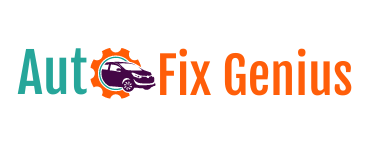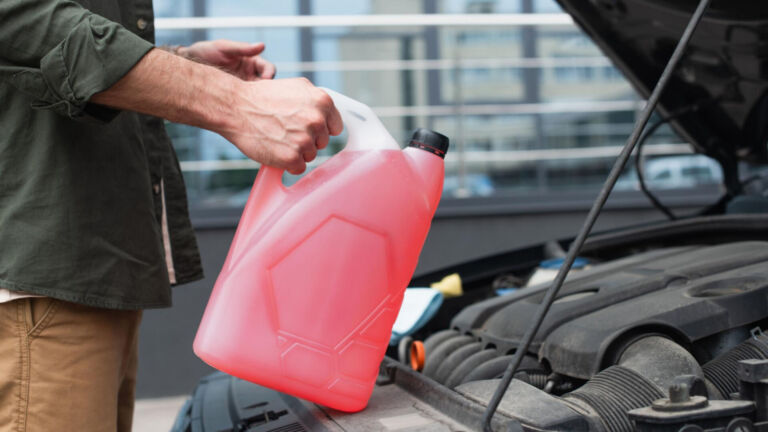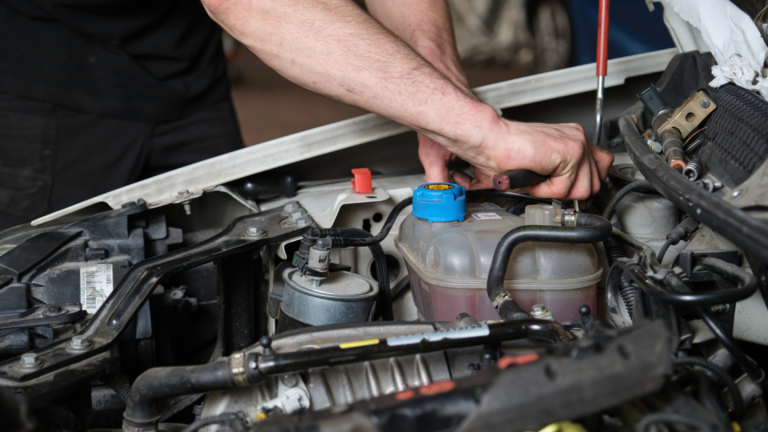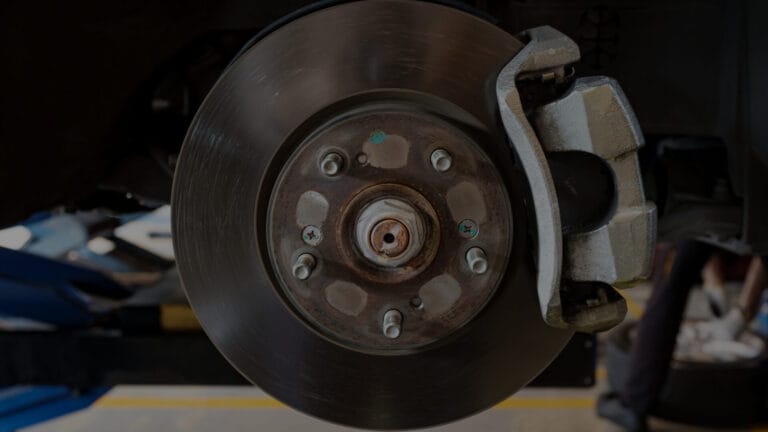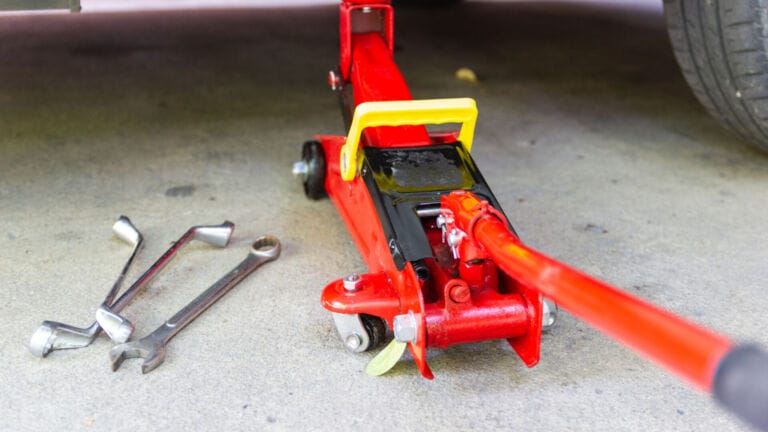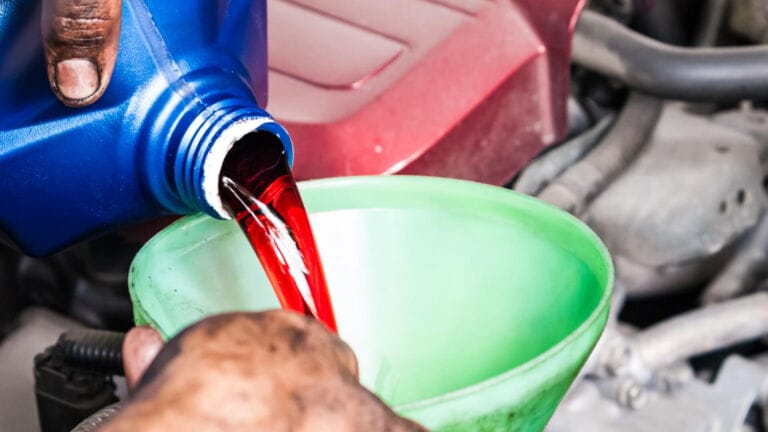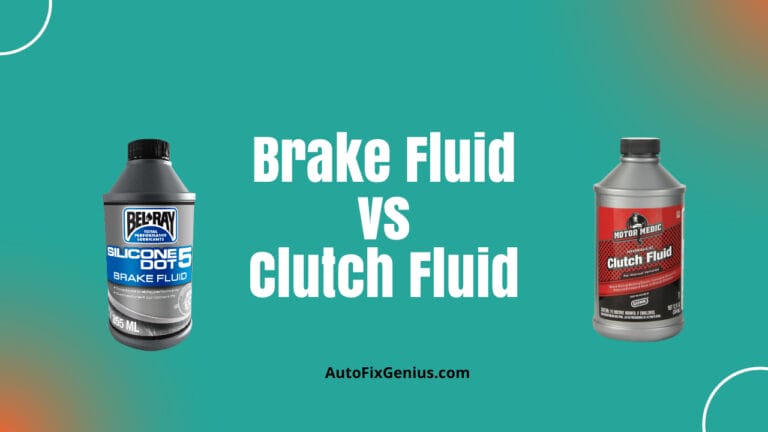Can You Use Copper Nickel Fuel Line: Is it Worth the Investment?
As the automotive industry continues to evolve, so does the technology to ensure your vehicle runs smoothly and efficiently. There’s a new star in the automotive world, gaining the admiration of car enthusiasts everywhere: copper-nickel fuel lines. So, is it worth the investment?
Can you use copper nickel line for fuel?
Yes, you can use the copper-nickel line for fuel. These alloyed lines are not just an upgrade; they are a game-changer.
Let’s take you on a journey under the hood, exploring the role of fuel lines and why copper-nickel is causing a stir in the automotive world.
- What is Copper Nickel Line?
- Can you use copper nickel line for fuel?
- Why Copper Nickel is Best for Fuel Lines?
- Comparing Copper Nickel with Other Fuel Line Materials:
- Is it Worth Investing in Copper Nickel Fuel Lines for My Car?
- Maintenance and Care: Ensuring Copper Nickel Fuel Line Longevity
- Embracing the Copper-Nickel Upgrade: My Fuel Line Transformation
- Verdict
What is Copper Nickel Line?
Copper-nickel fuel lines are not your average component of a car’s fuel system. They represent a remarkable leap in innovation and engineering that’s transforming the way we approach automotive performance and safety.
These fuel lines are a type of fuel line made from a unique alloy blend. Unlike traditional fuel line raw materials such as steel or rubber, which are susceptible to rust and wear, copper-nickel offers a unique combination of attributes.
It consists primarily of copper (Cu) and nickel (Ni), which are rust-resistant and malleable. The ratio of copper to nickel can vary but commonly falls within the range of 88-90% copper and 10-12% nickel, with slight traces of other elements like iron, manganese, and other critical minerals.
The high copper content contributes to its excellent formability, making it easier to bend and shape for custom installations. Adding nickel enhances its corrosion resistance, even in challenging environments, like exposure to harsh weather conditions, road salt, or high-pressure humidity. This combination of attributes makes the cop nickel fuel line a strong and long-lasting choice for your car’s fuel system.
Can you use copper nickel line for fuel?
Yes, copper nickel line is an excellent choice for fuel lines. They are more corrosion- and rust-resistant than steel fuel lines, making them a better investment for long-term fuel system performance. Moreover, this tube is compatible with various fuel types, including gasoline, diesel, and ethanol blends.
This fuel line will prevent the hassle of dealing with rusty or corroded pipes that may cause leaks and system malfunctions. Besides being highly corrosion resistant, it has excellent heat resistance and durability to withstand the harsh conditions often found in fuel systems without deteriorating.
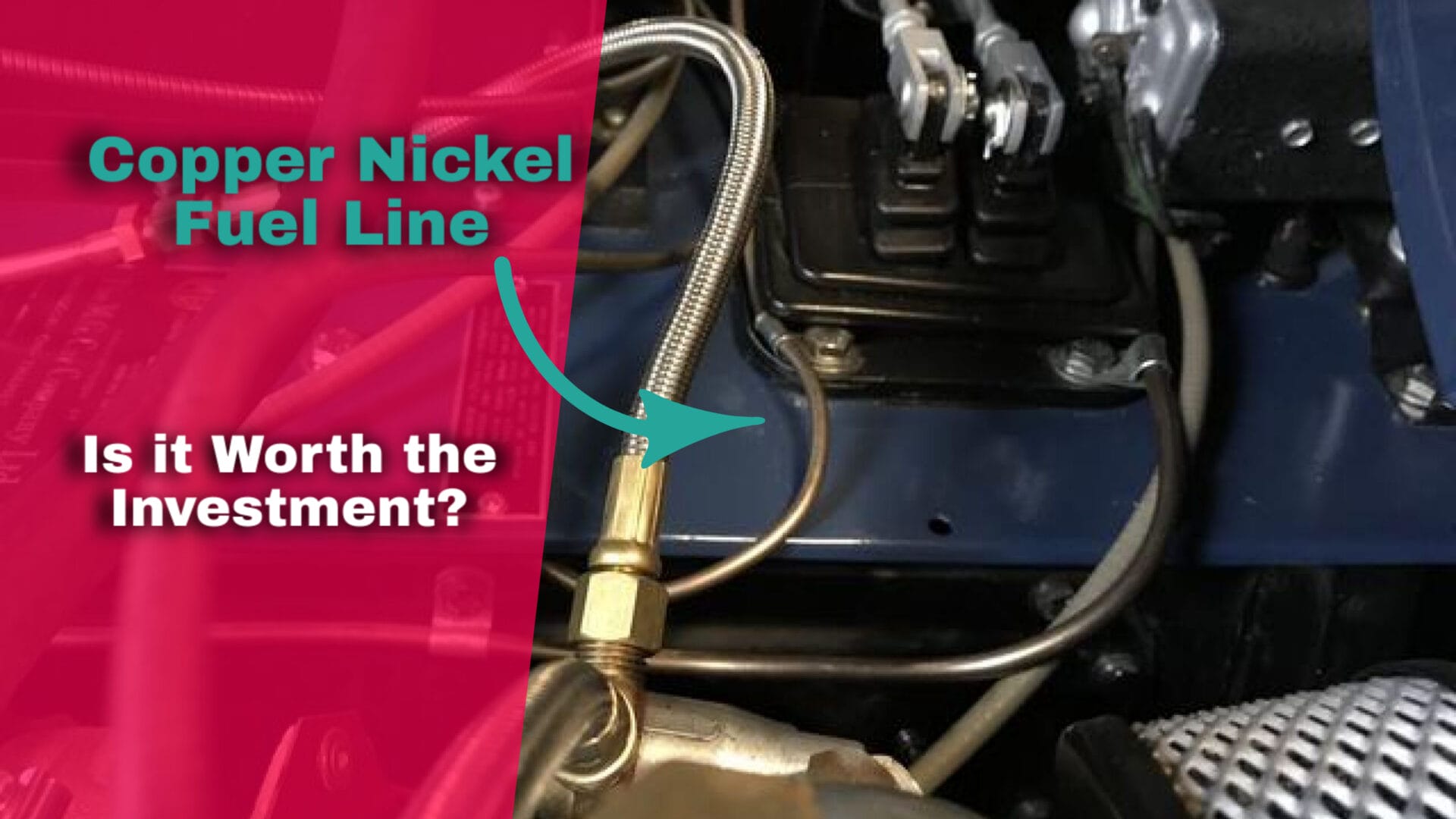
However, its flexibility makes it easy to install and work with, saving time and effort. Plus, its sleek appearance adds a touch of style to your vehicle or machinery.
So whether you’re working on a classic car restoration project or just need to replace a fuel line in your everyday electric vehicle, nicop fuel line is a reliable and long-lasting option that will keep your fuel flowing smoothly.
Say goodbye to leaks and hello to worry-free driving!
Why Copper Nickel is Best for Fuel Lines?
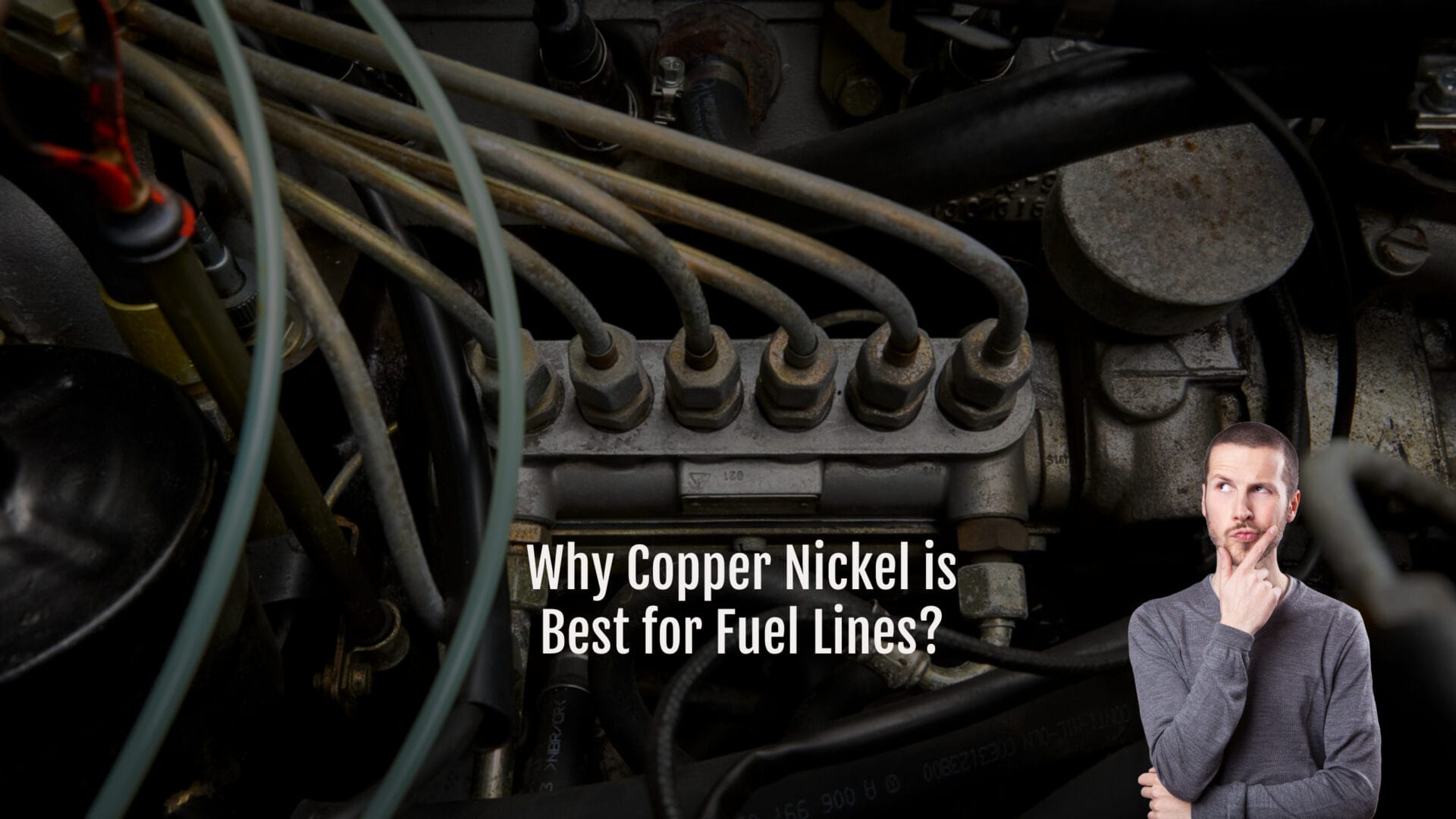
Copper-nickel fuel lines offer many advantages that make them an excellent choice for upgrading your car’s fuel system. Let’s take a closer look at these advantages to truly understand why they’re capturing the attention of car enthusiasts:
1. Longevity – Lasting Performance
Copper-nickel fuel lines are the epitome of longevity in the automotive world. Their durability far surpasses that of traditional fuel lines. While steel or rubber is prone to wear, tear, and rust over time, it remains intact and reliable even after years of continuous use.
This remarkable longevity not only saves you money in the long run but also ensures that your vehicle’s fuel system remains in prime condition, allowing you to enjoy those exhilarating rides for years to come.
2. Corrosion Resistance
For those living in extreme weather climates, copper-nickel fuel lines are the game changer. Traditional materials can succumb to rust, compromising the integrity of your fuel system. In contrast, copper lines thrive in these environments, preventing malfunctions, fuel leaks, and, most importantly, fire hazards in your car’s fuel lines. With this blended material, you can rest easy, knowing your fuel system is well-protected and functioning optimally.
3. Compatibility – Versatility for Any Fuel Type
This fuel line is incredibly versatile, making it compatible with various fuel types. Whether you’re using diesel, gasoline, or ethanol blends, it can handle it all. Your fuel system is versatile enough to accommodate different fuel requirements seamlessly. You can use it to enhance your car’s flexibility and to adapt it to your needs.
4. Flexibility – Customization Made Easy
One standout characteristic of this fuel line is its exceptional formability. It can be easily bent, flared, and installed, which makes it the ideal choice for custom fuel line setups. Whether you’re restoring a classic car or looking to enhance your high-performance vehicle, the flexibility of this flaring tool allows for greater customization and ease of installation.
With this method, you can improve the appearance and performance of your vehicle without spending any time or effort on it, making it perfect for car enthusiasts who love doing their upgrades.
5. Safety – Driving with Confidence
Above all, Safety should always be a top priority for any car enthusiast, and nickel-copper fuel lines deliver this essential peace of mind. By significantly reducing the risk of fuel line failures, fuel system accidents, or other fuel-related issues, they allow you to drive with confidence.
When you’re behind the wheel of your prized car, knowing that your fuel system is reliable and secure is invaluable. It’s a peace of mind that enhances your overall driving experience and lets you focus on what truly matters – the road and the thrill of the drive.
With these advantages, copper-nickel fuel lines prove to be a top-notch choice for your fuel system needs. Say goodbye to fuel line worries and hello to reliability and peace of mind with Copper Nickel Fuel Line.
Comparing Copper Nickel with Other Fuel Line Materials:
Copper-nickel fuel lines represent a significant advancement in fuel line technology. Compared to traditional materials like steel, nylon, rubber, etc., it offers the durability of steel without corroding, and it outperforms rubber in terms of longevity and performance. Car enthusiasts looking for the best of both worlds will find this fuel line an excellent investment in their vehicles.
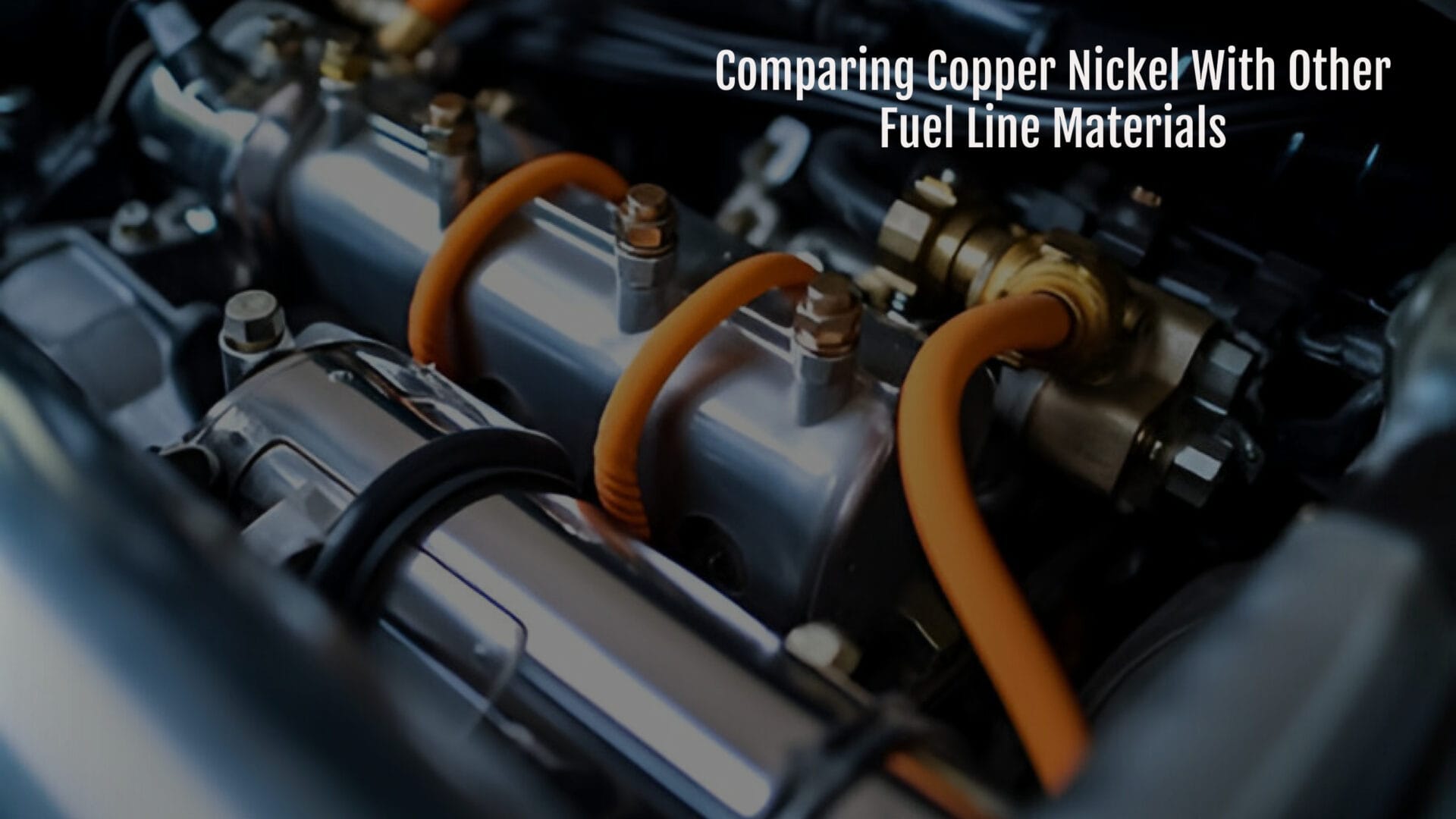
However, let’s look at other fuel line options to weigh the qualities and their budget considerations when choosing between copper tubing and other fuel lines. It’s a choice between the unyielding guardian and the flexible ally, each with unique strengths.
Steel Fuel Lines:
Steel fuel lines are the road warriors renowned for their unwavering strength. They fear no foe, including Mother Nature’s harshest temper tantrums. Moisture, road salt, and deterioration stand no chance against them, making them the go-to choice in unforgiving climates.
When the heat pressure rises under the hood, steel tubing remains an excellent customer. It laughs in the face of scorching engine bays, ensuring a constant fuel flow even when the engine roars its might.
Durability? Steel material wrote the book on it. Wear and tear are mere scratches on their surface. They’re the heroes of classic car revivals and modern high-performance upgrades, ensuring your journey lasts.
However, there’s a trade-off. While steel braided line is strong, they lack the flexibility of copper-nickel counterparts. They don’t bend and shape as easily, which can affect installation. Plus, their top-tier performance often has a heftier price tag than copper lines.
In the realm of fuel lines, steel braided line is the no-nonsense protector. It’s all about resilience, but it might need more adaptability. Car enthusiasts must choose wisely, considering their priorities and budget.
Aluminum Fuel Lines
Aluminum fuel lines are your lightweight champions, offering a mix of durability and efficiency in automotive applications. They are rust-resistant due to the natural oxide layer that forms on the surface and is significantly lighter than steel.
These lines have good heat resistance, which is beneficial for carrying fuel in high-temperature environments. You can use it with various fuel types, but they may not suit certain corrosive fuels or ethanol blends.
Aluminum fuel lines are relatively easy to bend and shape, making them more pliable than steel lines but less so than copper-nickel or nylon lines. Plus, they are often more affordable than steel or PTFE lines but may be priced similarly to copper-nickel. The cost can vary depending on the alloy used and the specific application.
However, this resistance can be compromised in regions with harsh road salt or where the lines are exposed to abrasive conditions. So, they are more commonly used in non-critical areas of the vehicle.
Nylon Fuel Lines
Nylon fuel lines, also known as plastic fuel lines, are another lightweight and cost-effective option for brake line systems. These lines are durable and withstand a reasonable amount of wear and tear. They do not rust or deteriorate when exposed to moisture or road salt, making them a suitable choice for regions with harsh weather conditions.
So, they are commonly used in various automotive applications and are considered strong enough for their lightweight nature.
Nylon fuel lines are highly flexible, compatible, and easy to manipulate, allowing for straightforward installation and customization. They can be easily bent and shaped to fit the specific needs of the vehicle. Plus, they are typically more affordable than many other materials, making them a cost-effective choice for budget-conscious car enthusiasts.
However, they may not be suitable for high-pressure or high-performance applications due to their flexibility, whereas materials like copper, nickel, or steel are more suitable. So nylon is also mostly preferred in non-critical areas of the vehicle, such as vent lines, emissions systems, and some low-pressure fuel lines.
Rubber Fuel Lines
Rubber fuel lines are the tried-and-true classic when it comes to fuel delivery. They are a cost-effective and flexible choice for less demanding applications where durability and high performance are not a primary concern.
Unlike steel or copper-nickel, rubber hose isn’t inherently rust-resistant. It is not designed to withstand corrosive elements, making it a suboptimal choice for fuel lines in regions with challenging weather conditions or road salt. They can degrade over time due to exposure to fuel and environmental factors.
So, Rubber lines may not be suitable for high-performance applications due to their limitations.
However, rubber lines are flexible and relatively easy to install. Their ease of use can be advantageous, especially for quick replacements.
Is it Worth Investing in Copper Nickel Fuel Lines for My Car?
Investing in copper nickel fuel lines for your car is a wise decision. These durable lines offer exceptional corrosion resistance, ensuring long-term reliability. Additionally, using 5W30 and 5W40 together can improve engine performance and efficiency. Upgrade your car’s fuel lines to copper nickel for enhanced durability and peace of mind.
Maintenance and Care: Ensuring Copper Nickel Fuel Line Longevity
Routine maintenance and care can significantly extend the lifespan of your copper-nickel lines and ensure your vehicle’s fuel system continues to perform optimally. Car enthusiasts who keep a watchful eye on their fuel and brake lines and perform these maintenance practices can enjoy peace of mind on the road.
Let’s know how you can ensure fuel line long-term performance:
1. Visual Inspections: Regularly inspect your fuel lines for any signs of wear, damage, or decomposition. Look for any cracks, dents, or signs of degradation. Ensure that there are no loose or leaking connections in brake tubing.
2. Tighten Fittings: Over time, fitting may loosen due to vibrations and temperature fluctuations. Periodically check and tighten the fittings and brake pipe to prevent potential leaks.
3. Cleaning: Clean the exterior of the fuel lines with a mild detergent and a soft brush to remove any accumulated dirt or debris. This helps prevent rust and keeps the supply chain in good condition.
4. Rust Prevention: While copper-nickel lines are corrosion-resistant, other components like compression fittings and clamps may not be. Consider using rust-preventative coatings on these parts to maintain the overall integrity of the fuel system.
5. Inspect Clamps and Mounts: Ensure the hose clamp and mount securing the fuel lines are in good condition. Replace any damaged or worn components to prevent movement or vibration that could cause stress on the braided lines.
6. Fuel Quality: Use high-quality fuel and clean the hard line in your vehicle to minimize the risk of contamination or clogs in the nicop lines.
7. Replacement: If you notice significant wear, damage, or rust on your flare lines, consider replacing them to prevent potential fuel system issues. It’s better to address problems proactively rather than waiting for a failure.
Embracing the Copper-Nickel Upgrade: My Fuel Line Transformation
Like many car enthusiasts, I decided to take the plunge and replace my aging, corroded steel line with a state-of-the-art copper line upgrade. Little did I know it would be a game-changer in more ways than one.
As soon as I started driving with the new copper fuel line, I felt an immediate difference: clean energy. It wasn’t just about aesthetics; it was about performance and peace of mind. Here’s how this upgrade turned my driving experience around:
Fuel Freedom Unleashed:
The real beauty of copper-nickel fuel lines emerged when I realized they could seamlessly accommodate a variety of ethanol blends, lithium, and different fuel types. No more worrying about compatibility and pressure when choosing my fuel source; I had newfound freedom at the pump.
Performance Boost on the Track:
I’m no professional racer, but I do love a spirited drive. With this copper line in place, my car responded with a noticeable improvement in energy transition. The fuel flowed smoothly to my high-performance engine tube, giving me an edge on the track.
Winter Warrior’s Best Friend:
Living in a region known for its brutal winters and road salt, I was often concerned about corrosion. But the rust-resistant copper pipe proved to be my vehicle’s best friend. Even in the harshest weather, my ride held its own, providing unmatched reliability.
Classic Beauty, Modern Durability:
But the most remarkable transformation was in my classic car. The copper alloy lines not only stood the test of time but also added a touch of modern durability to my beloved vintage beauty. Now, I drive confidently, knowing that my classic car is as reliable as ever.
My journey with copper nickel alloy fuel lines has been remarkable. The freedom to choose my fossil fuels, improved performance, energy security, and unwavering reliability have made me truly believe in this upgrade. It’s more than a fuel line; it’s a driving experience enhancer.
Verdict
Choosing the right fuel lines can make all the difference to your vehicle’s performance and safety. Imagine the frustration of dealing with unexpected fuel leaks, costly repairs, and decreased performance due to inferior fuel line materials. Not only can this be inconvenient, but it can also put your safety at risk.
While steel, rubber, and aluminum fuel lines each have their advantages, nickel copper fuel lines strike a balance between rust & leak resistance and ease of installation.
Made from a unique blend of copper and nickel alloys, these fuel lines ensure long-lasting performance and peace of mind. It is a reliable and versatile choice that can truly transform your driving experience.
So, don’t settle for anything less than the best; invest in nickel copper fuel lines to take your automotive passion to the next level. Your car deserves it, and so do you.
